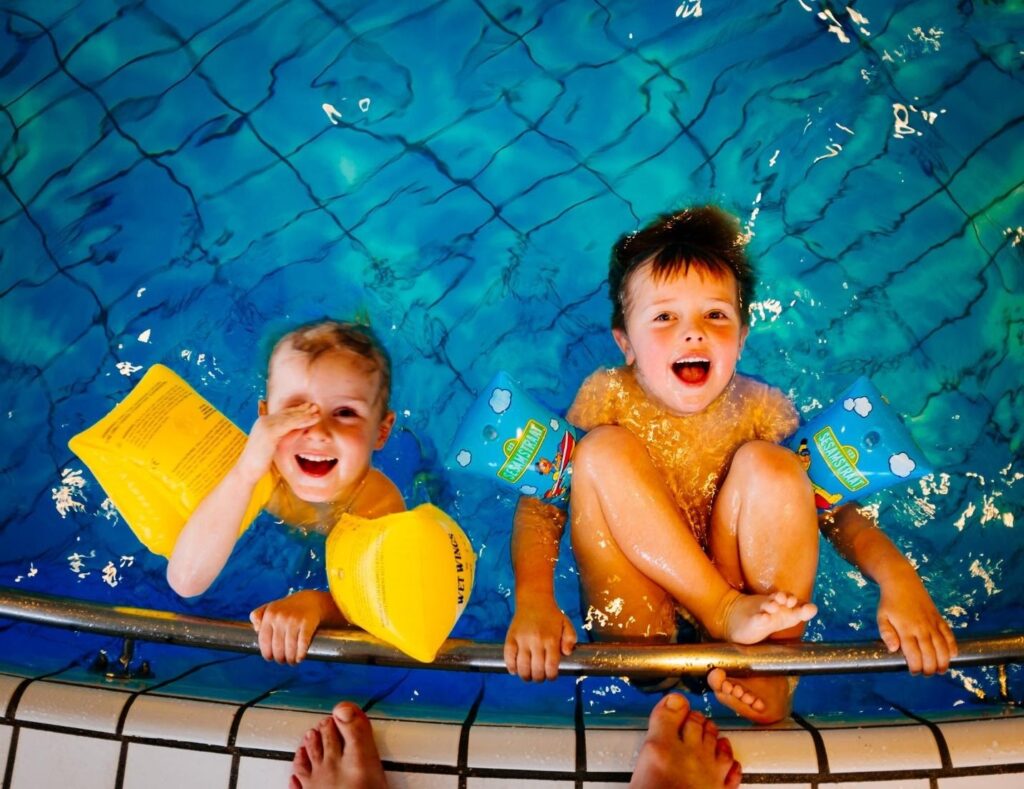
Image via Pixabay
Most children love swimming, particularly in the summer months, and what can be safer than a swimming pool, right? Although parents consider pools to be better than the dangerous, unpredictable waves in the ocean or deep lakes when it comes to the safety of children, swimming pools are not without their risks.
In fact, the chemicals present in swimming pool water can have several adverse effects on health. A 2019 report said that over 4,500 people get injured due to pool chemicals per year, out of which over a third are children. Let’s go into the details of how pool chemicals can pose a health threat for swimmers and what you can do about it.
Which is the most harmful chemical?
Pool chemicals like chlorine and other disinfectants, sanitizers, etc. are important to maintain hygiene in a pool, especially for the public ones. Both unclean, contaminated water and pools with an excessive amount of chemicals can cause recreational water illnesses (RWIs). Chlorine is the most commonly used chemical as it kills algae and bacteria, but there can also be harmful effects caused by this chemical such as the following:
- Eye infection: This is one of the most common chlorine-related issues as swimmers often complain of inflamed, watery eyes.
- Skin irritation: Chlorine can quickly and effectively destroy germs, but it also generates free radicals. Since pool water is absorbed by your skin and sometimes children even drink it, there may be skin-related problems like rashes, dryness, and burns.
- Respiratory issues: Chlorinated water often causes breathing-related health problems, especially for children with asthma, mainly because of the toxic fumes that it can give out.
- Gastrointestinal diseases: If your child complains of headaches and nausea after spending time in the pool, it may be a case of a gastrointestinal issue caused by swallowing chlorinated pool water.
Tips to Prevent Risks from Pool Chemicals
Learning that swimming in the pool may be dangerous for children can be scary, but here’s how you can protect them against the harmful chemicals:
- Use the right amount of chemicals: If you have a pool at home, do not over-chlorinate it. In fact, it is a myth that using more disinfectants will make the water safer. These chemicals are quite strong, so stick to the recommended quantity.
- Ensure proper ventilation: Most chlorine burns are caused by chlorine gas build-up due to lack of ventilation. Use windows and fans to remove moisture from the air in the area and allow sunlight to fall directly on the water.
- Teach hygienic practices to your kids: A study found that urinating in the pool can cause more than a messy situation as uric acid combines with chlorine to create dangerous compounds. This can create a health hazard for swimmers. In addition, ask them to refrain from drinking pool water.
- Use coconut oil: Apply coconut oil liberally on children’s bodies before they enter the pool, as this creates a protective layer on their skin. This not only reduces the penetration of harmful chemicals, but also acts as a natural but effective sunscreen.
- Explore alternatives: There are alternatives to chlorine available that you can consider to disinfect your swimming pool. Moreover, go for filters with silver and ultraviolet pool cleaners to make the water safer. Although you will still need to use chlorine, the quantity needed will decrease.
Children should not be discouraged from fun, healthy activities like swimming. At the same time, their safety comes first. Since swimming pools will always need to be disinfected, taking these precautionary measures can be significantly helpful in reducing the harmful effects of pool chemicals.
